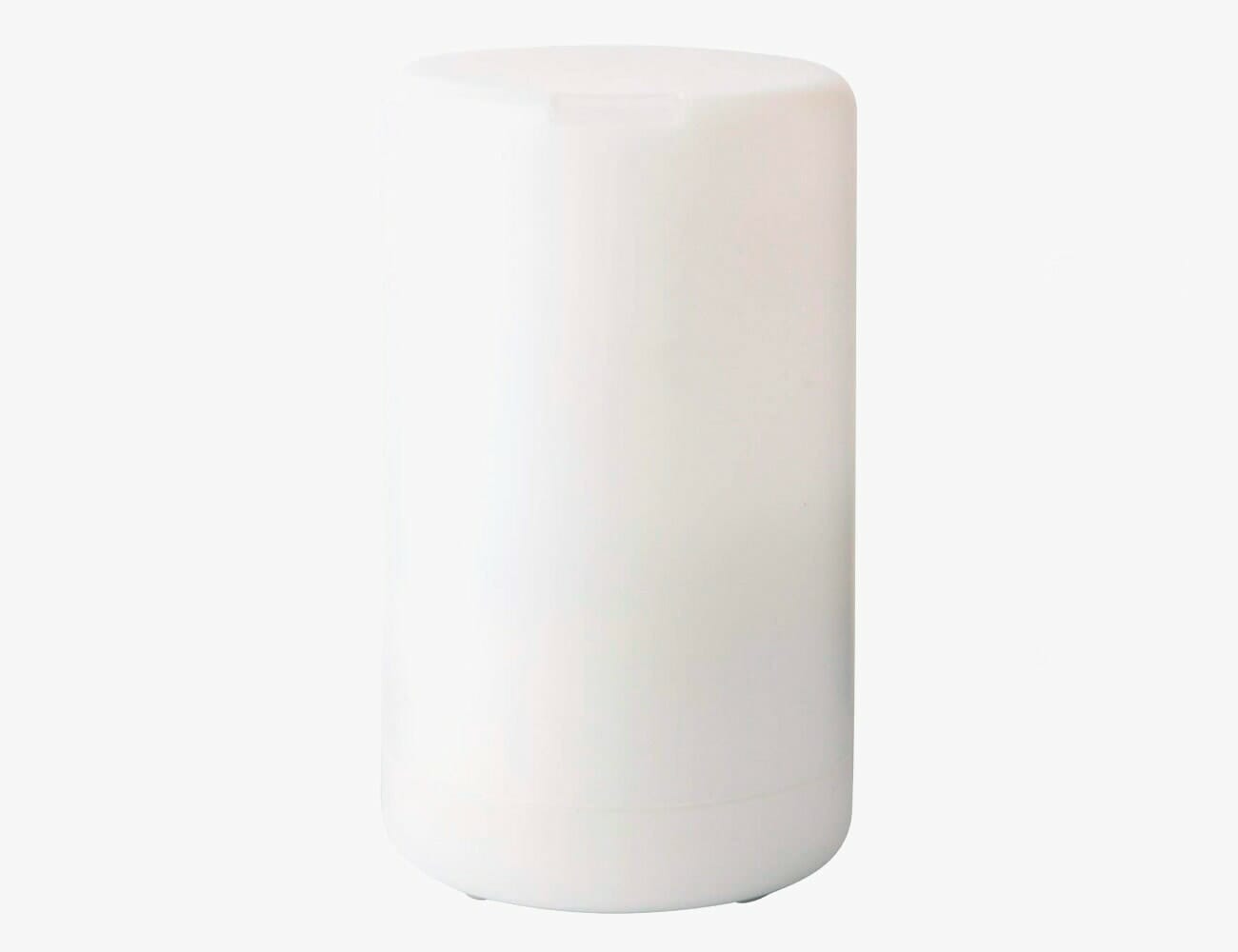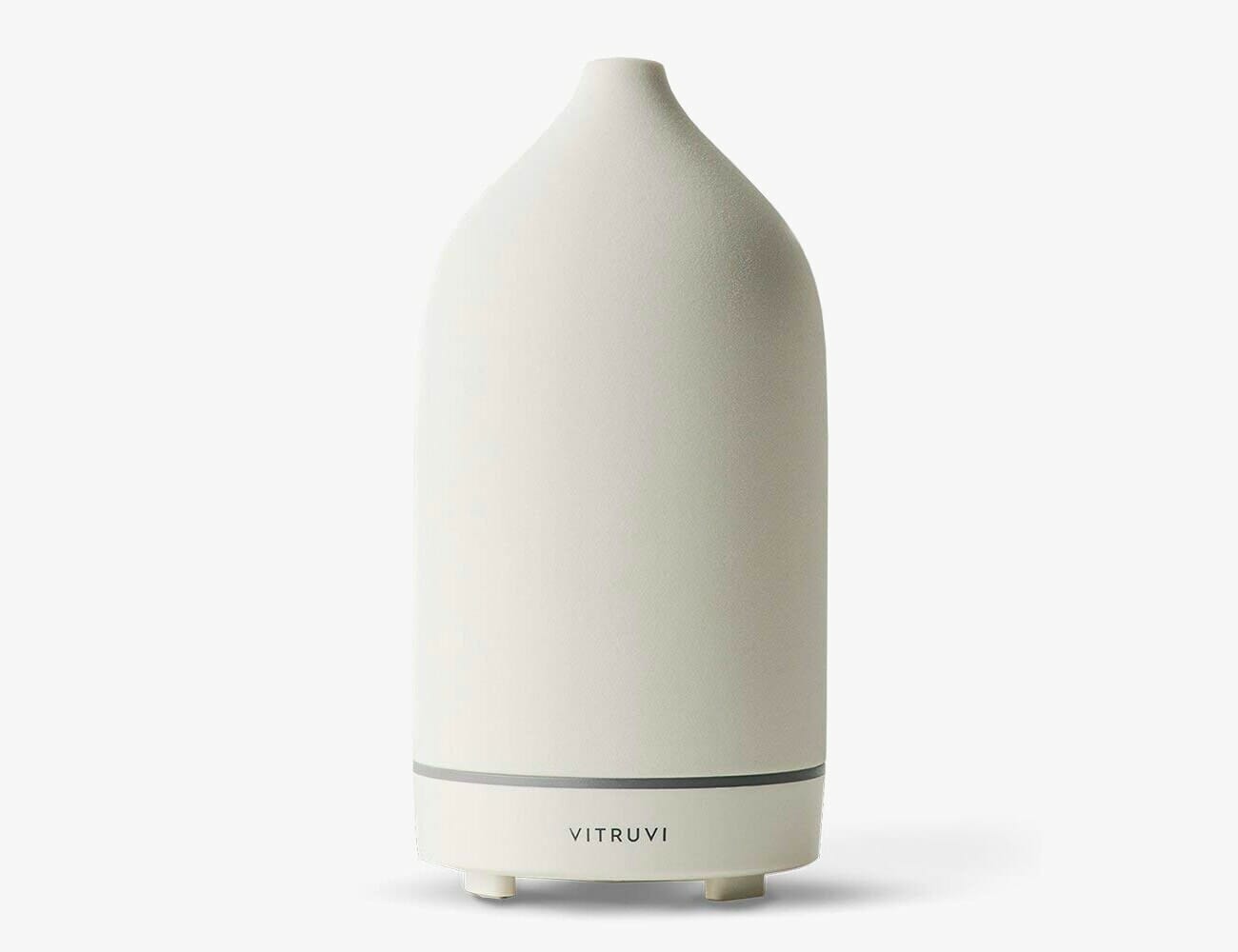Once you realize the humble oil diffuser is basically a safer, reloadable candle that can run indefinitely, you understand its charm. But not all diffusers are worth the upgrade. So what’s the difference between the hundreds of options available on Amazon? We tested a few — and then some — to find out.
Our Pick: Urpower 2nd Generation Aroma Diffuser
First, ignore the bright blue color — you can change that. This is the most affordable diffuser on this list by a country mile, but Urpower’s water chamber, looks and runtime all nearly match or surpass the more premium options out there.
Unlike other inexpensive options, the Urpower isn’t covered in faux-wood or strobe lights, and it’s markedly easier to clean than most others. Its stream of mist was also much stronger than other affordable options and only slightly weaker than our other, pricier picks. Point is, if you want an oil diffuser run for a couple hours every once in a while, you’re better off getting a cheap diffuser that performs like a $100 diffuser than to dive headfirst into more expensive waters.
What to Know About Oil Diffusers
Clean them.
Bad bacteria, mold and most awful things thrive in wet, warm environments, which is precisely what your oil diffusers will provide. Empty it out every few runs and clean out all the nooks and crannies with a couple cotton swabs, then run water with a bit of vinegar or dish soap for a few minutes.
You don’t need a lot of oil.
No matter what diffuser you’re using, you really only need to add a few drops of oil to the water for a noticeable change. Depending on the strength of your oil (avoid fillers at all costs), it should only take four to eight drops of oil.
They’re safer than candles.
The cheaper and older method of getting a space to smell nice involves flames and smoke. While it’s highly unlikely a candle will tumble off a table while you’re taking the trash out, accidents happen. Oil diffusers offer a more (albeit with slightly less ambiance) direct route to a nice-smelling home that doesn’t risk the home in the process.
Don’t believe the “wellness” hype.
Despite what the best efforts of a hundred wellness blogs, science does not support claims of any type of healing power beyond basic aromatherapy. Per UC Berkley’s Wellness site: “Essential oils may have some therapeutic benefits but should not take the place of conventional, evidence-based medications and treatments, and they should never be ingested.”
Other Great Oil Diffusers
Muji Ultrasonic Aroma Diffuser
In the US, Muji’s diffusers might be its best-known product. Walk into any Muji store and you’ll find out why — the frosted white diffuser spews a much stronger stream of mist than any we tried and, even this slightly smaller size, works for hours with very little water and oil. It also sports Muji’s easy-to-use, plain aesthetic to a T. Muji also stocks one of the best ranges of essential oils out there.
Vitruvi Stone Aroma Diffuser
Vitruvi’s diffuser is one of few that doesn’t feel like cheap plastic. Instead, its body is a matte ceramic that comes in black, white or blush. Its mist strength is slightly weaker than that of the Muji option, but Vitruvi’s comes with a handy 7-hour intermittent diffuse setting. If you want your diffuser to sit in the middle of the room, this might be the play.
Muji Portable Ultrasonic Aroma Diffuser
Another Muji diffuser, but for a completely different use. For one, it’s tiny enough to slide into your packet or dopp kit during travel. It also doesn’t require water to use — just a few drops of oil and a bit of charge via USB cable (there’s a rechargeable lithium ion battery onboard). After testing, I can safely say you shouldn’t expect to make a good-smelling impact on medium or large rooms, but even in large rooms the areas directly around this mini-diffuser is improved. What does this mean? This is the best portable, travel diffuser you can find. This is the anti-airport smell diffuser.
Raindrop 2.0 Nebulizer
No, this isn’t a diffuser. Where diffusers vibrate water and oil and push out a misty, more subtle scent, nebulizers force compressed air through the oil and create a far more room-filling scent. They’re not as popular as diffusers because of cost and the sound they can produce. Raindrop’s nebulizer is both cheaper and far less noisy than its competitors. Get this if you don’t care as much for the mood a diffuser instills (there’s no plumes of misty vapor with nebulizers) and you’re just in it for the smell.










